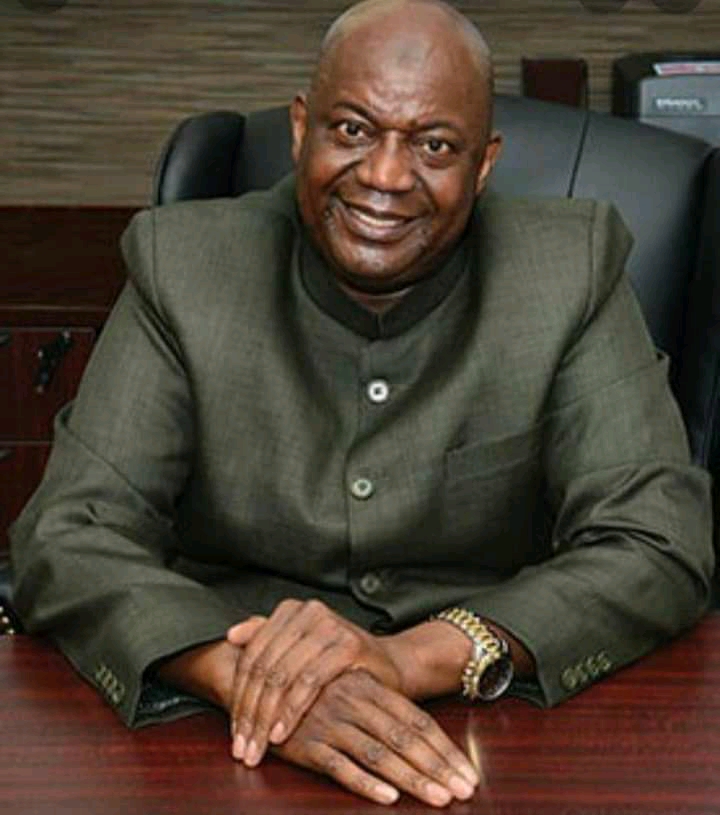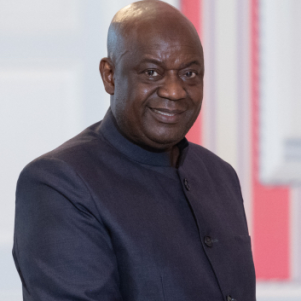
Inna lillahi wa inna ilayhi rajiun
Immortals never die. As Tagore wrote, “Death is not extinguishing the light; it is only putting out the lamp because the dawn has come.”
Ambassador Dawda Fadera’s work shines on. I extend my profound condolences to the bereaved family, his people in Kiang in Lower River Region, his family and friend in the United States, and fellow Gambians.
Being a former Secretary-General and Head of the Civil Service and Gambian ambassador in the United States of America, his loss should be mourned by all. May Allah, the merciful, the beneficent, grant him Aljannah Fridausi.
Death is a shadow that always, always follows the body. A universal, inevitable phenomenon that picks the weak and the strong, the rich, and the poor, young and old.
“Every man must do two things alone; he must do his believing and own dying” (Martin Luther – not the King). Yes. All that lives must die. It is a debt we must pay. In the words of Hilaire Beloc, “death is what even politicians fail to bribe or swindle, bully or blackmail.” Fare thee well, ambassador Dawda Fadera.
In recent times, I have not seen death dim so bright a light for the Gambian community, our generation, and our nation than it did through resting the soul of this great gentleman.
Suppose you ever interacted with ambassador Dawda Fadera for the one month of his absence. In that case, you must have understood the meaning of irreplaceability. He was sent here to play a part so well that even death gave him a full complement at departure.
He is a successful brand, very well blessed that he had the grace of waving goodbye. The national focus has remarkably been on the fecund mind and heart and brains his maker endowed him with. His moral rectitude and talks hoist him as a loyalist of untainted truth, patriotism, courage and consistency, and honest living.
To mourn ambassador Fadera is not to love him less but a sign of eternal remembrance. Though so early his departure, so great a legacy he left.
As a true friend and a brother, I accept Ambassador Fadera. He fit William Shakespeare’s words, “When he shall die, Take him and cut him out into little stars and he shall make the face of heaven so fine That all the world will be in love with night And pay no worship to the garish sun.”
Remembering Ambassador Dawda Fadera should not be a passing commitment; it is not a popular undertaking or a transient fad to be written in articles, blogs, and posted on social media pages; instead, it is a moral requirement of the highest magnitude for each and every one of us.
Ambassador Dawda Fadera deserves the praise, gratitude, and respect of every person in the Gambia and beyond. He deserves to be celebrated as the one who stood his ground to intervene in the foreseeable catastrophe that would have been caused by the desperate yet reprehensible and severe moral failing of a very ill and selfish man.
Ambassador Fadera is a quintessential ever-dependable and consummate civil servant and administrator, a pungent diplomat, an alumnus of the prestigious Fouray Bay College University of Sierra Leone, a nationalist in thought and deed, a cerebral farsighted and foresighted human resources and personnel super permanent secretary of the second republic.
He served for many years in the civil service when professionals paid more attention and regard for nation-building and patriotism understood as a paternalistic emotional connection to and love for the fatherland, graced by honesty, accountability, diligence, hard work, team spirit, professionalism, partnership, and precision.

You only need to have known his breed from his carefully chosen worded memos, minuting, drafts, and prompt replies to correspondence.
Ambassador Dawda Fadera served three governments and presidents/heads of state, yet at the end of his life, hardly has anyone accused him of partisan-party affiliation, ethnic or religious bigotry, parochial and primordial allegiances, or such vices.
On the contrary, these virtues have been generally acknowledged and testified to by the high and mighty, low and humble, career experts and fresh job seekers who came in contact with him both as a civil servant and the foreign service.
As Secretary-General and Head of the Civil Service, he was praised for his recommendations for a reduced, less expensive governance structure through downsizing unnecessary, overlapping, duplicated, and superfluously multiplied government agencies, which resonates with the World Bank Report.
However, unfortunately, while it is very clear that it is a necessary adjustment, our ethnoreligious character, non-developmental and non-merit-promoting political considerations (and lack of political) will sidestep such obstacles to nation-building boldly) has not allowed us to implement it.
Suppose he could serve so diligently, to the public acclaim of all. Why has it become less easy and common to breed civil servants of this caliber?
As praises are poured on him deservedly, how many would be proud to have Dawda Fadera as a brother an uncle, father, someone from his ethnic or religious leaning, associate, or neighbour who is ready to help without asking or receiving favours and will refuse any suggestion of favour at the expense of merit?
Why do we expect those we know in government circles to favour us with job opportunities, money, mosque, or village support, knowing that they have to cut corners, steal or follow the wrong procedure to achieve that?
Why are today’s civil servants more materially conscious, corrupt, extortionary, and more inclined to impoverish already impoverished and struggling fellow citizens?
As we blame them, what is our direct or indirect contribution to the corruption of the hitherto professional civil service?
The pride of any bureaucracy (civil service) is professionalism, career entry-exit track, impersonality, impartiality, defined remuneration system, and tenured service.
It forms the fulcrum of any governance system, creating the much-needed stabilizing middle class, the absence of which a society is reduced to a disproportionate class of few bourgeois and multitudinous poor, the bane of developing or impoverished communities.
While politicians come and go, professional civil servants remain, running the system from one government to another.
Furthermore, without them, no government can stand even as no politician can steal, embezzle or misappropriate public funds without the cooperation of their senior cadre, who still retains the accounting or financial portfolios.
With the politicization and institutionalized corruption of the civil service, the inevitable death of the few but disappearing caliber of personnel like ambassador Dawda Fadera, and the seeming inability of the generational transfer of their once cherished values, how could any society prosper, progress, actualize its potentials and arrive its destination?
Our high horse pontification of a desired 21st-century modern country, a tech-compliant electoral system, a functional society of possibilities will all be vainly delusional without a solid incorruptible bureaucracy built on values, ideals, aspirational goals, and defined destination.
Our sanctimonious finger-pointing hobby is hypocritically unhelpful. What are we doing to ourselves? When shall virtues return without scorn, mocked, cajoled, or unrewarded?
An American president once said, “A nation reveals itself not only by the men it produces but also by the men it honours, the men it remembers.”
Now, as the whole country acknowledges the sacrifice of this great gentleman, there seems to be a consensus that it is not just enough to recognise his efforts fleetingly and ‘in-the-moment.’
Let us be thankful and honour his courage and memory, and the memory of all those who sacrificed in the way he did by never treating their sacrifice casually.
Every country worth its grain of salt has a way of recognising the remarkable contributions of its citizens that have distinguished themselves in their services to the benefit and progress of the nation. Indeed, as a Gambian, none could have given more than this beautiful and brilliant yet simple man gave in the Gambia!
Hundreds of words have been spoken about him and his professional, selfless service to his people and community.
Furthermore, from all indications, in life, his dignity, compassion, and proficiency, seem to be only a few of his characteristics that lead to the respect and adoration of his associates, colleagues, family, and friends.
The patriotism, selflessness, and humanity of this one man were extraordinary. He personified passion and gave so much unconditionally. Now in death, he has distinguished himself as our very own hero, never to be forgotten.
Ambassador Fadera was a true inspiration. As we remember, it is my sincere hope that we keep his memory alive within our hearts and in our daily thoughts and prayers. His family and friends, while heartbroken, should take pride in what he did and must know that people who inspire people.
If the Gambia were filled with men and women that had the strength of character, the dedication, the compassion of Ambassador Dawda Fadera, malice and dishonesty would not find a heart to inhabit. Each of us knows that our community and our country face complex challenges.
Therefore, let us each draw inspiration and strength from a patriot of a gentleman such as ambassador Dawda Fadera to make this country better.
We are all lessened by his passing but, at the same time, are elevated by his actions, service, and example.
May his memory prove to be a blessing. Ambassador Dawda Fadera gives me a reason for the hope that people like him, who have an unshaken belief in humanity and who put a high value on the life of others, still exist within us.
I join Gambians in mourning Ambassador Fadera. Will the many Dawda Fadera please stand up!
The labours of our hero’s past should not be in vain. Therefore, it is incumbent on us to pass a better society to posterity so that our deliveries may also not be in vain.
Rest in peace, and you have served well as a diligent civil/public servant and a diplomat and exemplar.
My thoughts and prayers go out to all the people of Kiang, and the family left behind.
May you all find peace in the face of such a significant loss! May Allah grant him Alijannah Firdausi.
By Alagi Yorro Jallow










Recent Comments